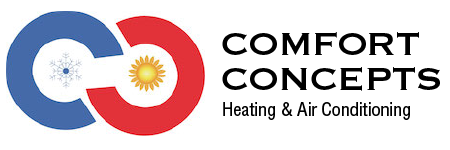
We spend a good majority of our time in our homes. In fact, the Environmental Protection Agency (EPA) has estimated being indoors comprises 90% of our schedule. However, the EPA also has determined your indoor air can be three to five times more polluted than outside your home.
That’s due to the fact our residences are firmly sealed to boost energy efficiency. While this is good for your utility bills, it’s not so fantastic if you’re a part of the 40% of the population with respiratory allergies.
When outside ventilation is insufficient, pollutants including dust and volatile organic compounds (VOCs) might get trapped. As a consequence, these pollutants could worsen your allergies.
You can boost your indoor air quality with clean air and regular housework and vacuuming. But if you’re still having problems with symptoms when you’re at your residence, an air purifier may be able to provide relief.
While it can’t get rid of pollutants that have landed on your furnishings or flooring, it can help freshen the air traveling around your residence.
And air purification has also been scientifically proven to help reduce some allergic symptoms, according to the American College of Allergy, Asthma and Immunology. It can also be appropriate if you or someone in your household has a lung condition, like emphysema or COPD.
There are two kinds, a portable air purifier or a whole-home air purifier. We’ll go over the distinctions so you can determine what’s right for your residence.
Whole-House Air Purifier vs. Portable Air Purifiers
A portable air purifier is for a single room. A whole-house air purifier works alongside your home comfort equipment to clean your full house. Some types can work by themselves when your HVAC equipment isn’t on.
What’s the Best Air Purifier for Allergies?
Look for a model with a High Efficiency Particulate Air (HEPA) filter. HEPA filters are placed in hospitals and deliver the greatest filtration you can find, as they catch 99.97% of particles in the air.
HEPA filters are even more powerful when used with an ultraviolet (UV) germicidal light. This powerful combination can eliminate dust, dander, pollen and mold, all of which are common allergens. For the greatest in air purification, evaluate equipment that also has a carbon-based filter to reduce household vapors.
Avoid buying an air purifier that generates ozone, which is the main ingredient in smog. The EPA cautions ozone may aggravate respiratory troubles, even when emitted at minor amounts.
The Allergy and Asthma Foundation of America has compiled a listing of questions to consider when purchasing an air purifier.
- What can this purifier extract from the air? What doesn’t it remove?
- What’s its clean air delivery rate? (A better amount means air will be cleaned more quickly.)
- How frequently does the filter or UV bulb need to be changed]? Can I finish that on my own?
- How much do replacement filters or bulbs cost?
How to Decrease Seasonal Allergy Symptoms
Want to receive the {top|most excellent|best] performance from your new air purification equipment? The Mayo Clinic suggests taking other procedures to limit your exposure to problems that can cause seasonal allergies.
- Stay inside and keep windows and doors sealed when pollen counts are heightened.
- Have other household members trim the lawn or pull weeds, since this work can trigger symptoms. If you must do these jobs on your own, you may want to consider using a pollen mask. You should also shower without delay and put on new clothes once you’re completed.
- Avoid hanging laundry outside.
- Turn on your air conditioner while at your house or while driving. Consider adding a high efficiency air filter in your home’s home comfort unit.
- Even out your home’s humidity levels with a whole-house dehumidifier.
- Hardwood, tile or linoleum are the ideal flooring types for lowering indoor allergens. If your home has carpet, use a HEPA filter on your vacuum cleaner.
Let Our Pros Manage Your Indoor Air Quality Needs
Prepared to take the next step with adding a whole-house air purifier? Give our specialists a call at 405-494-7444 or contact us online to get an appointment. We’ll help you locate the right unit for your family and budget.

